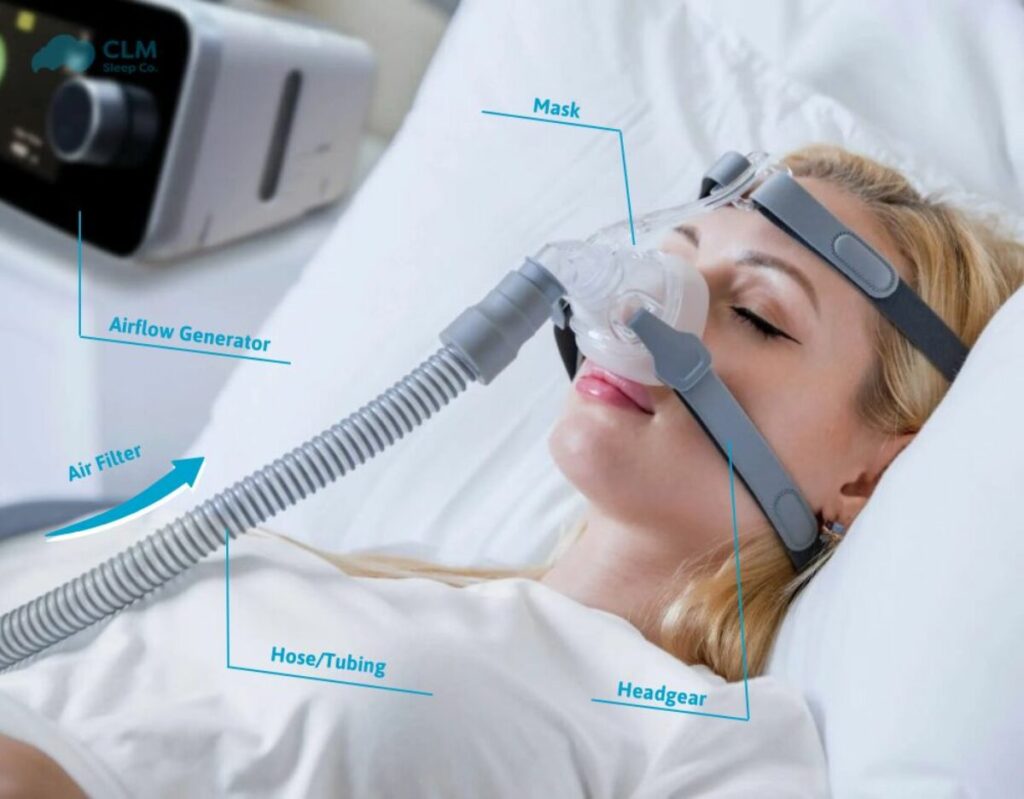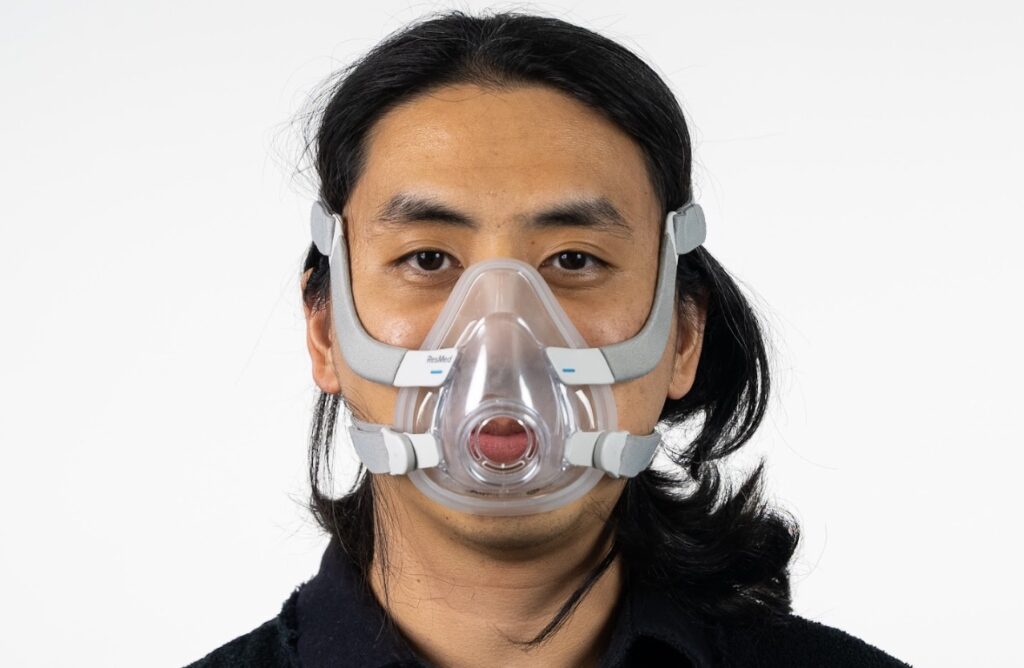Sleep apnea is a common sleep disorder that affects millions of people worldwide, often leading to daytime fatigue, poor concentration, and serious long-term health consequences. One of the most effective treatments for sleep apnea is CPAP therapy (Continuous Positive Airway Pressure). CPAP machines are designed to help people with sleep apnea by providing a constant stream of air that keeps their airways open during sleep. But beyond just improving sleep quality, CPAP therapy offers a range of benefits that can significantly enhance your overall quality of life. In this article, we will explore how CPAP machines work, their types, and the various ways they can improve both your sleep and health.
What is Sleep Apnea and How CPAP Machines Help
Sleep apnea is a disorder characterized by frequent pauses in breathing during sleep. These interruptions can last for several seconds to minutes and occur many times throughout the night. The most common type, Obstructive Sleep Apnea (OSA), occurs when the muscles in the back of the throat relax too much and block the airway. Other types include Central Sleep Apnea, which happens when the brain fails to send signals to the muscles that control breathing, and Complex Sleep Apnea, a combination of both OSA and central sleep apnea.
CPAP machines are the most widely used treatment for Obstructive Sleep Apnea. These machines work by delivering a continuous stream of air through a mask, preventing the airway from collapsing. The steady airflow allows you to breathe continuously, reducing or eliminating the symptoms of sleep apnea, such as snoring, choking, and gasping for air during sleep.
By keeping your airway open, CPAP therapy not only improves your sleep quality but also helps reduce the risks associated with sleep apnea, such as high blood pressure, heart disease, stroke, and diabetes.
See more: Best CPAP Mask for Stomach Sleepers: How to Make the Right Choice
Types of CPAP Machines
There are several types of CPAP machines, each catering to different needs. Understanding the different options can help you choose the best one for your condition:
- Standard CPAP (Continuous Positive Airway Pressure):
- How it Works: This is the most basic CPAP machine that delivers a constant flow of air at a fixed pressure throughout the night.
- Benefits: Simple, effective, and affordable. Ideal for individuals with mild to moderate obstructive sleep apnea.
- Limitations: The fixed pressure may not accommodate changes in breathing patterns during the night.
- Auto-CPAP (Auto Adjusting CPAP):
- How it Works: This machine automatically adjusts the air pressure based on real-time changes in your breathing patterns. It delivers a higher pressure when necessary and reduces it when you are breathing normally.
- Benefits: Provides more personalized treatment, offering comfort and effective therapy throughout the night.
- Limitations: More expensive than the standard CPAP machine.
- BiPAP (Bilevel Positive Airway Pressure):
- How it Works: Provides two levels of pressure: a higher one for inhalation and a lower one for exhalation. This makes it easier to exhale against the pressure.
- Benefits: Ideal for individuals with complex sleep apnea or those who need a more advanced therapy option.
- Limitations: BiPAP machines are typically more expensive and more complex than standard CPAP machines.
How to Choose the Right CPAP Machine
When choosing a CPAP machine, it’s important to consider the following factors:

- Comfort: Choose a machine that offers customizable features such as a ramp function (which gradually increases pressure) and a variety of mask options to ensure comfort.
- Noise Level: If you are sensitive to noise or share your bed with a partner, opt for a quieter model. Many newer CPAP machines are designed to operate at low noise levels.
- Portability: If you travel often, look for a lightweight and portable CPAP machine that’s easy to pack and comes with a travel-friendly carrying case.
- Price: Standard CPAP machines are more affordable, while Auto-CPAP and BiPAP models tend to be more expensive due to their advanced features.
Consulting with your healthcare provider is crucial to selecting the CPAP machine that best suits your specific needs.
CPAP Machine Setup and Usage
Proper setup and consistent usage are key to getting the most out of your CPAP therapy. Here’s a step-by-step guide to using your CPAP machine effectively:
- Unbox and Assemble: Begin by connecting the CPAP machine to a power source and attaching the tubing to the machine and the mask. If your machine includes a humidifier, fill it with distilled water.
- Adjust Pressure Settings: For standard CPAP machines, your doctor will set the prescribed pressure. Auto-CPAP machines will adjust the pressure automatically based on your breathing.
- Fit the Mask: Choose the right mask type—nasal masks, nasal pillows, or full-face masks. Ensure it fits snugly to prevent air leaks.
- Start Using the Machine: Turn the CPAP machine on before going to sleep. Use it every night for optimal results. Regular use is essential for maximizing the benefits of CPAP therapy.
Troubleshooting Tips:
- Air Leaks: If air leaks occur, ensure that the mask is properly fitted and check the tubing for any cracks.
- Dry Mouth: Use a heated humidifier or try a full-face mask to prevent dry mouth.
- Noisy Machine: Place the CPAP machine on a stable surface, and ensure the air filter is clean to reduce noise.
CPAP Machine Accessories and Maintenance
CPAP machine accessories are essential for optimal performance and comfort. Here are some key accessories:
- Masks: Clean your mask daily with warm, soapy water to avoid bacteria buildup. Replace the mask every 6 to 12 months.
- Tubing: Clean the tubing weekly with mild soap and water to prevent mold. Replace the tubing every 6 to 12 months.
- Filters: Replace the air filter monthly to ensure clean airflow.
- Humidifiers: Clean the water chamber regularly to prevent mold and bacteria growth.
Regular maintenance helps ensure that your CPAP machine continues to perform effectively and provides clean, comfortable air.
Benefits of Using a CPAP Machine
CPAP machines offer a range of health benefits that extend beyond just improving sleep. These benefits include:
- Improved Sleep Quality: By preventing apnea episodes, CPAP therapy allows you to experience deep, restful sleep.
- Reduced Risk of Heart Disease: Sleep apnea is closely linked to an increased risk of heart disease, high blood pressure, and stroke. CPAP machines help reduce these risks by maintaining optimal oxygen levels during sleep.
- Better Daytime Energy: CPAP therapy helps reduce daytime fatigue, improving alertness, focus, and productivity.
- Cognitive Function Improvement: Better sleep leads to improved memory, concentration, and decision-making abilities.
Common CPAP Machine Problems and How to Solve Them
While CPAP machines are highly effective, users may encounter some common issues. Here’s how to resolve them:
- Air Leaks: Ensure that the mask is properly sealed and adjust the straps to achieve a secure fit. Check for any cracks in the mask or tubing.
- Dry Mouth: Consider using a heated humidifier or switching to a full-face mask if you tend to breathe through your mouth.
- Discomfort: Experiment with different mask types or use cushion pads for added comfort.
Cost of CPAP Machines and Insurance Coverage
CPAP machine prices vary depending on the type and features:
- Standard CPAP Machines: Typically range from $200 to $800.
- Auto-CPAP Machines: Range from $500 to $1,500.
- BiPAP Machines: Typically cost $1,000 or more.
Insurance Coverage: Most insurance plans cover CPAP machines when prescribed by a healthcare provider. It’s important to check with your insurance provider to determine what is covered and any out-of-pocket costs you may incur.
Conclusion
CPAP therapy is a highly effective treatment for sleep apnea, offering not only improved sleep quality but also a reduction in the risk of heart disease and other health conditions. By selecting the right CPAP machine, maintaining it regularly, and ensuring consistent use, you can experience a significant improvement in your health and quality of life. If you have sleep apnea or suspect you might, consult with your healthcare provider to determine if CPAP therapy is the right treatment for you. A good night’s sleep could be the key to a healthier, more energetic life.

